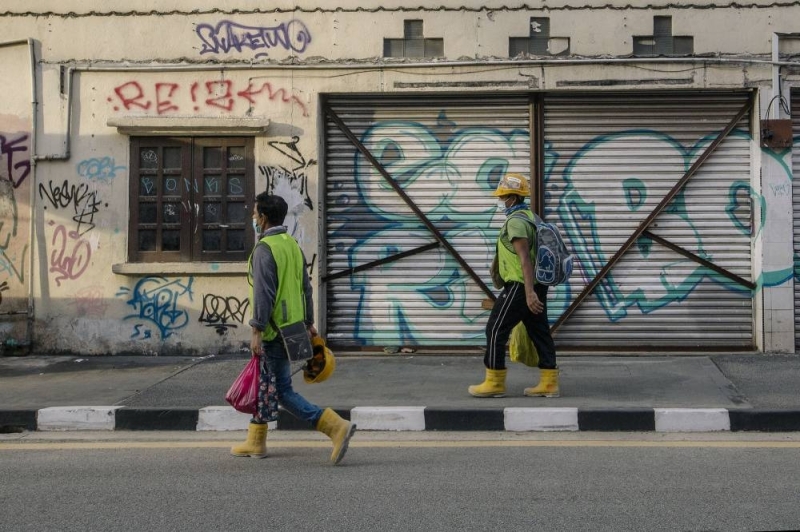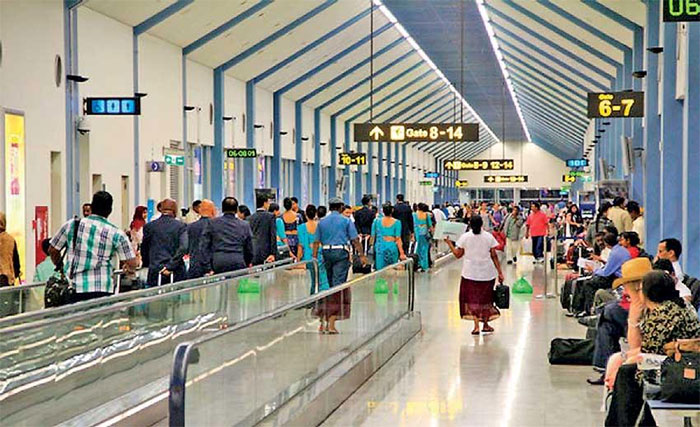
The acute shortage of foreign workers in several sectors has eased but the problem is far from over, according to an apex trade organisation.
As such, the National Chamber of Commerce and Industry of Malaysia (NCCIM) said the government should now consider lifting the across-the-board halt to foreign worker applications and lift the freeze imposed in March on the intake of new workers.
Its president Tan Sri Soh Thian Lai said despite the foreign worker situation improving, several industries were still seeing delays due to various “obstacles”.
He said although many foreign workers had arrived under the previous approved quota, the government should still continue to accept applications and evaluate them based on merit.
“It is time to resume foreign worker applications and approvals to cater to market-driven needs for manpower. This is especially when companies have justification for their applications.
“Maintaining the halt to foreign worker applications and stopping approvals will only intensify the challenging business environment and impact the growth of our industries,” he said in an interview.
NCCIM consists of a federation of five leading national trade organisations, namely Associated Chinese Chambers of Commerce and Industry of Malaysia (ACCCIM), Malay Chamber of Commerce Malaysia (DPMM), Malaysian Associated Indian Chambers of Commerce and Industry of Malaysia (MAICCI), Malaysian International Chamber of Commerce and Industry (MICCI) and Federation of Malaysian Manufacturers (FMM).
Soh, who is also FMM president, said although a recent poll titled “The Business Conditions Survey” showed that obtaining foreign workers and manpower shortages were no longer a top risk factor to business recovery and growth in 2023, businesses were still faced with challenging conditions, with global uncertainties adding to it.
“The manufacturing sector needs workers to fill the manpower gap,” he said, noting that the sector experienced a sharp 44% drop in foreign workers to 391,831 in 2021, from 697,124 in 2019.
Echoing the sentiment, SME Association of Malaysia president Ding Hong Sing said although most companies – including micro SMEs – had obtained foreign labour thanks to certain relaxations, several industries were still faced with a shortage of hands.
He said there were SME bosses who absorbed foreign workers from previous employers who fell on tough times, such as in the furniture industry.
“As this is not legal, these workers will still have to go through the recalibration exercise,” Ding added.
Real Estate and Housing Developer’s Association (Rehda) president Datuk NK Tong said although the government had expedited approvals, foreign workers had yet to arrive in the numbers needed.
“There are many other steps along the way, including the logistics aspect. We hope the situation will be sorted out. We will continue to engage the government on the solutions,” he said.
Master Builders Association Malaysia (MBAM) president Oliver HC Wee said a fair bit of workers had arrived for the construction industry, but the issue was their skill level.
“They need time to be trained. Most of the work they do needs rectification, which is costly,” he said.
Malaysian Palm Oil Association (MPOA) chief executive Joseph Tek said the arrival of more workers did not necessarily translate into increased productivity.
“The labour distress in Malaysia’s oil palm plantation sector has pointedly eased year-on-year.
“However, the industry continues to face a major challenge in the shortage of skilled workers for harvesting tall palms,” he said.
Tek said the estimated worker shortage in the plantation sector, including in Sarawak and Sabah, now stood at about 20%, which was similar to the pre-pandemic period.
“This shortage persists due to the ongoing repatriation of the existing workforce, while the newly recruited workers often possess lower skills set,” he added.
Malaysian Consortium of Mid-Tier Companies president Callum Chen said bosses had been resorting to paying recruitment agents to hire foreign workers.
“If we were to go through the process ourselves, it would be a hassle,” he said.
Chen said an agent was paid RM3,650 per worker, inclusive of fees from the source country, to complete the hiring process.
“It’s not cheap, but it’s part of the cost of doing business. That’s why we have been trying hard to hire more locals to fill the jobs,” he said.
In January, the government announced the Foreign Worker Employment Relaxation Plan (PKPPA) for five critical sectors – from Jan 17 to March 31 – to address the urgent workforce shortage issue.
The relaxed preconditions include bypassing a requirement for employers to prioritise local workers by advertising available vacancies on the Human Resource Ministry’s dedicated portal, as well as allowing employers to hire foreign workers from 15 source countries without going through employment and quota eligibility preconditions.
On March 18, Human Resources Minister V. Sivakumar said the quota application and approval for foreign workers, including those through PKPPA, had been postponed to a date yet to be announced.
He said the decision was made after the ministry approved a quota of 995,396 foreign workers for various sectors as at March 14.
The minister said this was to ensure employers who had been granted quota approval would start making plans for the immediate entry of the required foreign workers, adding that bosses should speed up hiring workers during this period.




